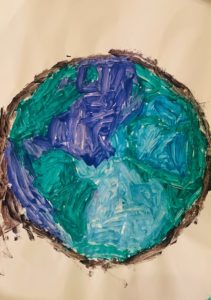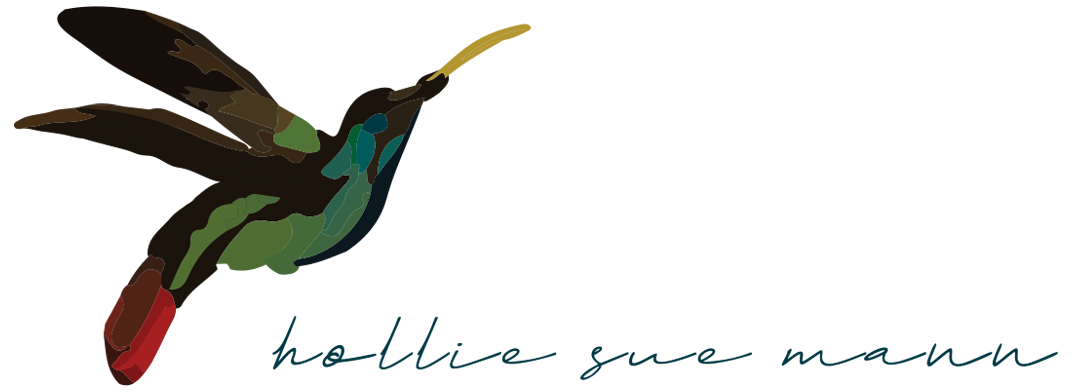28 Apr Out to Sea in the Time of Covid-19
“We must withdraw ourselves, to some extent, from the effects that are beyond our control and be content with the good will and the work that are the quiet expression of our inner life. We must be content to live without watching ourselves live, to work without expecting any immediate reward, to love without an instantaneous satisfaction, and to exist without any special recognition.”
—Thomas Merton, No Man is an Island

If you’re anything at all like me, you are both consumed by CoVid-19 and you are utterly exhausted by it. I ran into a friend the other day while out walking my dog, and when I asked him, “How are you doing?,” in that extremely earnest way we all do nowadays, he just looked at me with a long face, lacking that characteristic grin that always makes me smile in turn, and said, “I understand what we’re doing and why, but some of this shit is getting really old.” I felt him, on that particular morning. Deeply.
As the days drag on with, depending on your outlook and hesitancy to “open up” and jump back in too quickly, the screws are loosening, any quaintness that may have accompanied this “quiet time” (for those of us lucky enough to have escaped the virus so far and to not be on the front lines of fighting it) is fast losing its charm, and if we never see Zoom again, it will still be too soon. We have taken to asking others on social media, in a somewhat sad and desperate tone, what they miss from the Time Before, and turned the entire internet into a place to peddle what we can no longer buy or sell on the traditional market, and vomit all of our CoVid craziness daily. We are, all of us, tilting at windmills, unable to fully break with what we knew before and unable to fully accept the world we know now. Unable to even fathom its possibility, let alone reality.
Many things make this particular moment in history largely unlike any other, but the most obvious one is that we are all in this boat together, such as it is (that is, literally, what a pandemic is, its reach knows no bounds). Although our experiences of plague-living are vastly different—you may be lonely, while another is desperately needing time away from kids, a spouse, etc.; you may be out of work, forced home to self-isolate, while another may be fighting on the front lines, living in fear that they are exposing themselves and their family; you may be struggling to care for and protect an aging parent at home, while another is struggling with the fact that they cannot see theirs, isolated in a nursing home somewhere for their own protection—we are, nevertheless, all deeply affected by this pandemic, our lives radically altered. There is a profound interiority to this moment that not only makes our experiences of it deeply subjective, but also makes it the case that we cannot say, as we have at other tragic moments in human history, that is happening to them, not us. This crisis is happening to monks in Vietnam, sanitation workers in New York City, children in Kerala, India, and housewives in Lexington, KY. Sit with that for a moment.
What a heartbreakingly beautiful reminder that across the countless divides, we are, as humans, always, in some sense, in a boat together—vulnerable, fragile, and, persevering as we are as a species, still at the mercy of a universe we can never fully understand. I’ve said before that I do not believe in romanticizing tragedy, and I don’t. I’ve also said I do not see this virus as the Great Equalizer, and I still don’t. Still, some part of me does wonder if what the world needed just now was not this reminder of our common humanity and interdependence. For all of its unwelcomeness, I am grateful for at least this gift in the Time of CoVid-19. Here I sit, in this big, rocking boat, out at sea with all my fellows, uncertain of where we are going, how we will get there, and when we will arrive.
And so, too, there is a kind of rudderlessness to this moment. We feel adrift because we are, and we cannot seem to find an anchor that might help to ground us and keep us in one place for just a while. In yoga, I talk about this groundlessness aspect of human existence, about how so much of our suffering comes from tireless but futile efforts to resist the ever-changing, shifting nature of reality. We work so hard to fix everything—both in the sense of mending and keeping still. But so much of these efforts are futile, for we and the world we live in are always in flux, always changing, evolving, and shapeshifting.
Even in ordinary circumstances, routine is a luxury. A steady job (or, for some, the privilege to not work at all), regular childcare, good health and financial stability, a healthy, thriving community to live in, etc., these all go to making routine possible. Although there is a kind of monotony to life in the time of CoVid-19, we are also living in a kind of daily chaos, running behind children, trying to work and homeschool and balance that with enriching activities, while also finding time for ourselves and doing all we can to stay healthy. For many of us, the things that make routine possible have become threatened or have disappeared entirely. And I want to say that that’s not entirely bad; in fact, it is throwing into very sharp relief the groundlessness of human existence. How very fragile and tenuous the apparent fixidity of our lives really is. For those of us on the spiritual or “yogic” path, we are presented with an opportunity to, if not embrace, then deeply reflect on and learn to accept in some attenuated way this groundlessness, and to begin to let go of the many forms of ego-clinging that we tend to do in our daily lives. I do a *lot* of this. “I am a yoga teacher,” “I am a yoga student,” “I am a writer,” “I am a runner.” (I am, it turns out, pretty boring—must work on that.) I cling to a particular idea of how I should appear, how I should operate in my daily life, how I need to show up for others, even how I should think. But when the pandemic hit, in what seemed to us such a sudden and violent way, all of the things that I falsely believe make me me seemed taken away. The veil fell away, and I did not have all of those things I had two small children on my own 24/7, one of whom needed schooling and the other of whom needs constant watch, no way to teach, no time to write, no time for anything—and I counted myself among the lucky in all of this. Who was I?
This moment has dragged many of us abruptly into the present, giving us little else to count on but what we know right now. So much about the future is unknown, both in a big-picture kind of way (what will life be like after the pandemic?), but also in a small sort of way (will I be able to finish this paragraph in peace, without one or both of my children interrupting me?). This is one reason I have not offered regular virtual yoga classes; I cannot say what I will be doing in the next five minutes, let alone every Monday, Wednesday, Friday at noon. I’d rather be available for bug hunts with my boys than talk to a screen for an hour. Of course, I miss my students so much and have been so happy to see their shining, hopeful faces on the few occasions when I have taught, but that does not compare to a walk in the woods with little JoJo, so eager to explore and find adventure with mom. Similarly, I have had to relax my expectations around what I can actually accomplish with Oliver in a “school day,” and whether it is best to push to accomplish every task we have been assigned, or to do what we can and what feels right to him and to our family and allows us to stay sane and in a good groove as a team. Too many other immediate and, to me, more important things are taking precedent right now, and rather than turn away from what life is asking of me moment-to-moment and clinging to some idea of who I am supposed to be and the “schedule” I am supposed to follow (the very idea is laughable right now), I have learned to let go and be in each moment as it unfolds. I have learned to do the best I can with what I have been given right now, which is still quite a lot, and to accept that each day will entail a range of small victories and significant failures for me and my children, all of which will be totally fine. I have learned to ride the waves of this time, which is exactly what being on the yogic path entails.
If nothing else, this path asks us to be present for life as it’s unfolding and to drop all of the ego-clinging and desperate attempts to fix everything—that is, to mend what we think is broken and to construct a world that was just as static and predictable as the one we had before. What a gift, to be called to ride the waves and be fully present for this moment, strange and terrifying as it has been. To be in nature because we have nowhere else to go, to find shelter there, maybe even without our devices and tendency to publicize the whole of our existence.
Of course, like everyone, I have had to find ways to give my days structure and purpose, and to regularly connect with friends and family in any way I can, and that is all to the good. Regular walks with friends (socially distanced, of course), yoga classes, movie nights with the kids, quiet time on the deck, whatever it is. These things can anchor us and give us something to look forward to. We all must do what we can to get through this, with our sanity in some tact and maybe even a little bit of joy. But to cling to new things as we did to the old, and to imagine that we cannot have joy, contentment, and peace without them is to fight against the every-changing nature of reality. What a shame it would be to squander this opportunity to embrace the givenness and groundlessness of life by clinging to a false idea of who we are supposed to be (we are never quite what we think we are, anyway) and what our world is supposed to look like. I am who I am right now, moment by moment, and so are you. There is beauty and comfort in the surrender that comes with staying open to the flow of life that is beyond our control, which is so much of our shared existence. For now, while we have the chance, I want to say that we should do all we can to connect with that quiet expression of our inner-life, to let go of expectations of rewards and recognition, and to love all this strange life has to offer. If we can do that, then even this dark time of national retreat will have been time well spent.[/vc_column_text][/vc_column][/vc_row]

